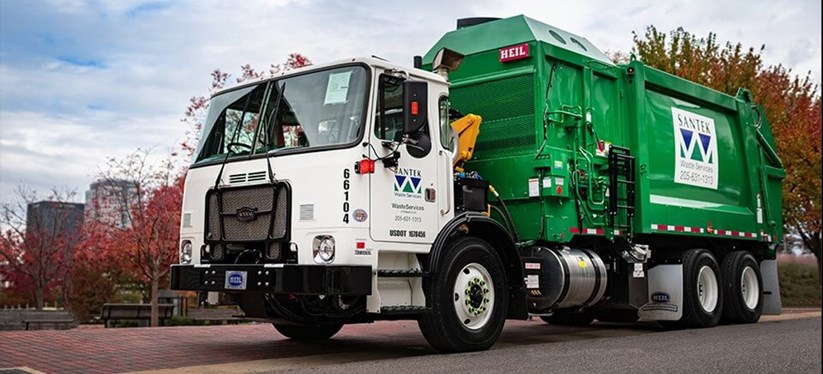- No results found
-
{{page.data.Name}}

Exploring Alternative Fuel Options in the Vocational Truck Market
The Biden administration has unveiled new tailpipe emissions requirements for cars and trucks over the next five years. This will also restore the Obama-era fuel economy standards that the Trump administration suspended. These expected changes are an excellent opportunity to examine the tried and tested alternative fuel options that already exist and how Autocar is leading the trucking industry in providing options for its customers to allow them to reduce their carbon footprint.
Ever since Autocar designed its first all-electric E1 and E2 trucks in 1923, the company has recognized the need to produce vehicles that go beyond the traditional internal combustion engine. Today, as the world looks to undergo the most significant energy transition in over a century, Autocar is a leader in developing emissions-reducing alternative fuel options for vocational vehicles.
Alternative Fuel Option #1: Compressed Natural Gas (CNG)
Autocar has been the industry leader in using CNG as an alternative fuel option since introducing CNG to the refuse truck market in 2004. Autocar was the first original equipment manufacturer (OEM) to offer a CNG refuse collection and recycling engines and has been the biggest producer of CNG-powered refuse trucks ever since. Autocar is the largest supplier of class 8 cabover CNG trucks across all industries, with over 8,000 trucks currently in service. Furthermore, CNG ranks as the most popular alternative fuel option for Autocar customers.
CNG engines provide several environmental benefits over diesel powerplants, reducing CO2 emissions by 16%, sulfur oxide emissions by 99%, nitrogen oxide (NOx) emissions by up to 95% and particulate emissions by 99%. In addition, CNG burns cleaner than diesel. CNG-powered trucks see reduced wear and tear on certain engine components and an extended life of its lubricating oils, reducing maintenance costs and noise. Finally, CNG can save operators between 30 to 50% in fuel costs.
Alternative Fuel Option #2: Electric Vehicles
Autocar is expanding its available alternative fuel options beyond CNG and is pushing into the electric vehicle (EV) space with the zero-emission all-electric version of the ACTT terminal tractor, to be available starting in late 2021. The E-ACTT will be equipped with Autocar’s leading-edge temperature-controlled lithium-ion battery technology.
Using electricity as an alternative to fuel presents several advantages for terminal tractor operators. The E-ACTT offers vastly reduced costs for predictive and preventive maintenance, eliminating the need for oil changes, transmission service, fan belts, air filters and other traditional fuel-based engine services. In addition, using an electric terminal truck eliminates the need and cost to completely replace the diesel engine at approximately 25,000 working hours.
Are Alternative Fuel Options Right for You?
When considering alternative fuel options, both CNG and EVs present compelling cases to fleet operators. In addition to reduced maintenance costs, CNG and EVs offer tangible environmental benefits, including improved air quality and reduced noise pollution. Opting for alternative power sources for your fleet also shows your customers your company’s commitment to being responsible corporate citizens. With medium- and heavy-duty vehicles accounting for 23% of transportation sector emissions in 2018, fleet operators can take advantage of the reduced environmental footprint of their vehicles as a selling point with existing and potential clients.
While switching to alternative fuel options can be initially daunting, CNG and EVs come with significant advantages over diesel trucks. Moreover, with the Biden administration looking to expand California targets for emissions reductions across the rest of the country and rising concerns with severe carbon emissions throughout the global marketplace, vocational truck operators should seriously consider switching to alternative fuel options.
Learn even more about us and our trucks at AutocarTruck.com.
Sources: